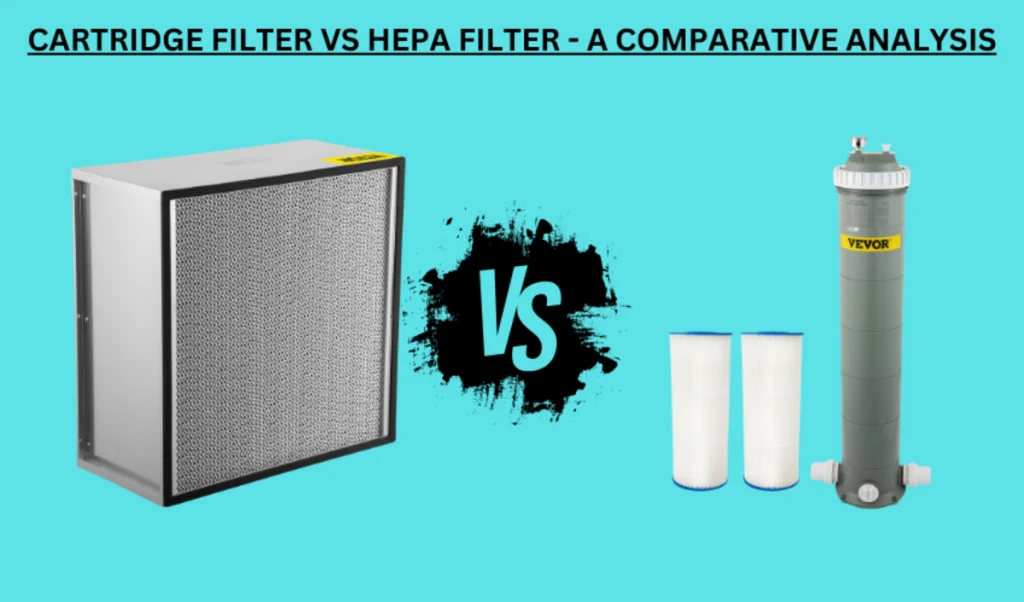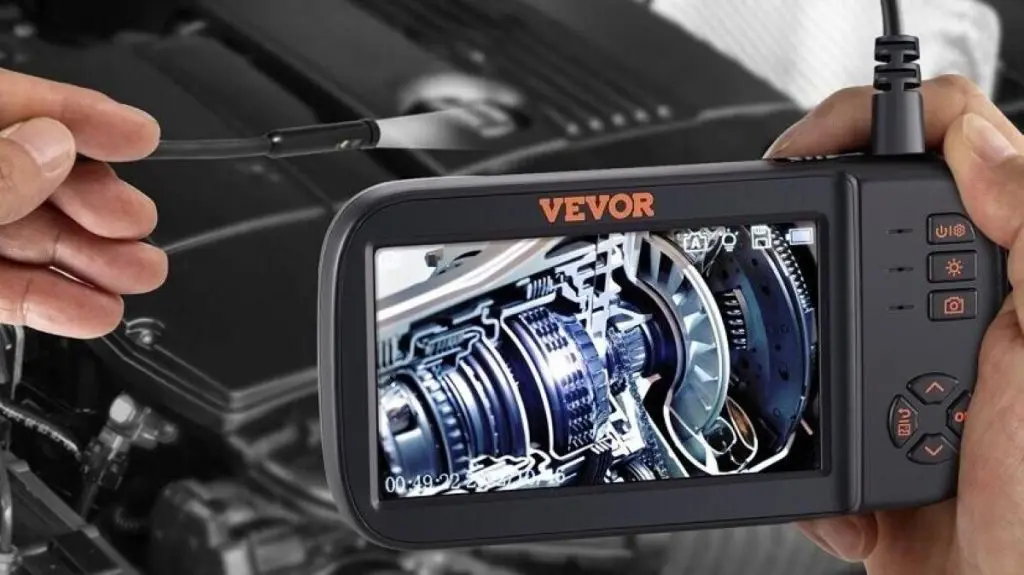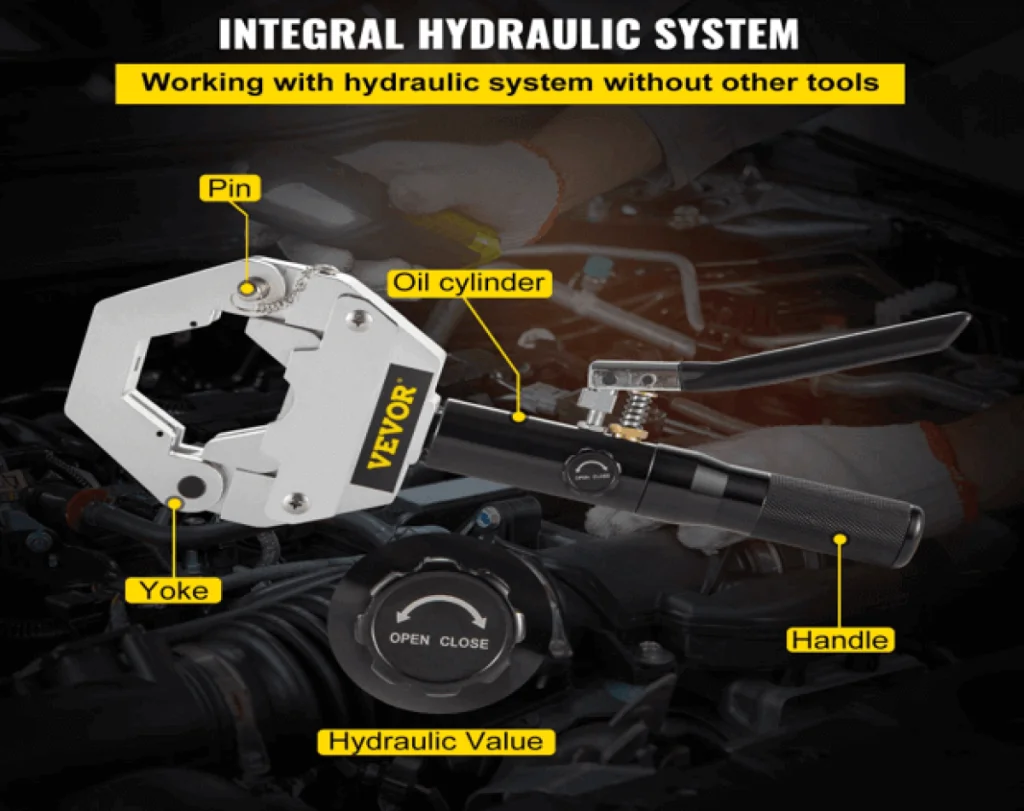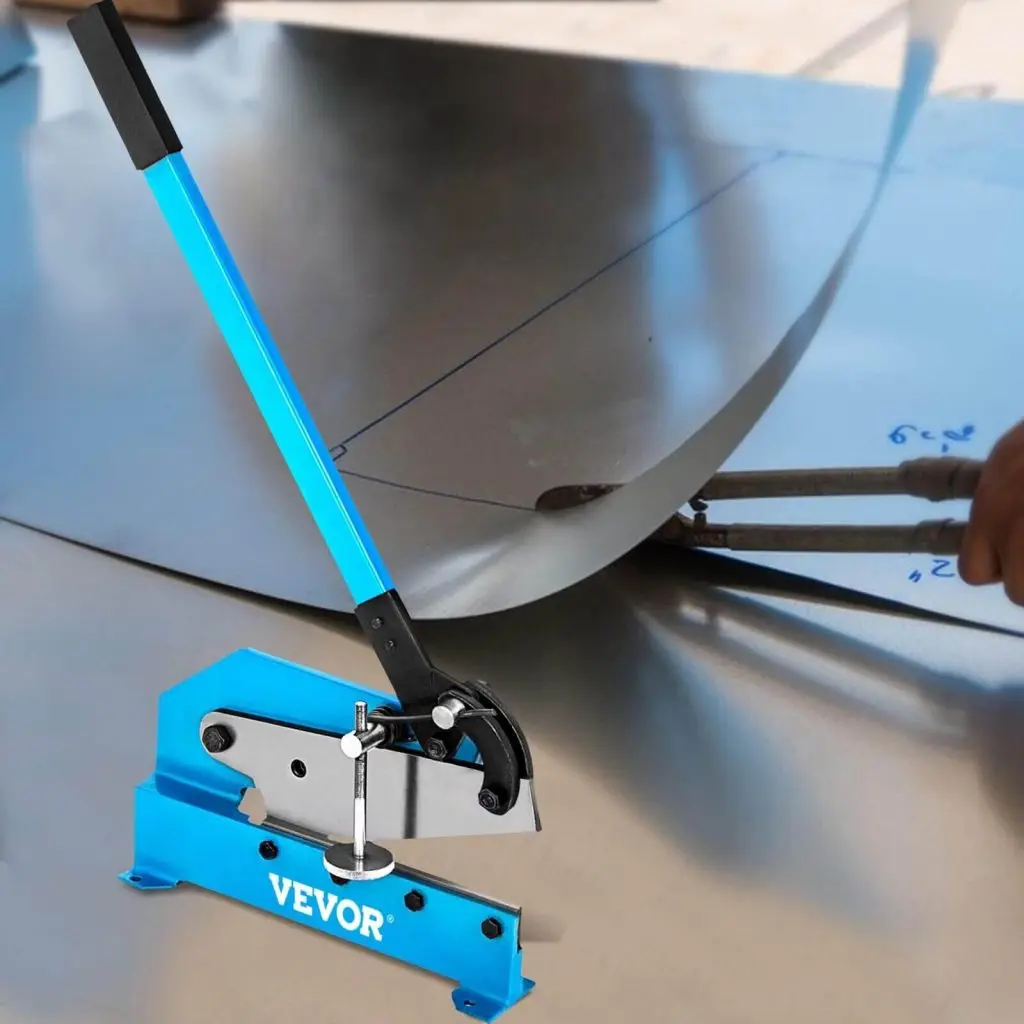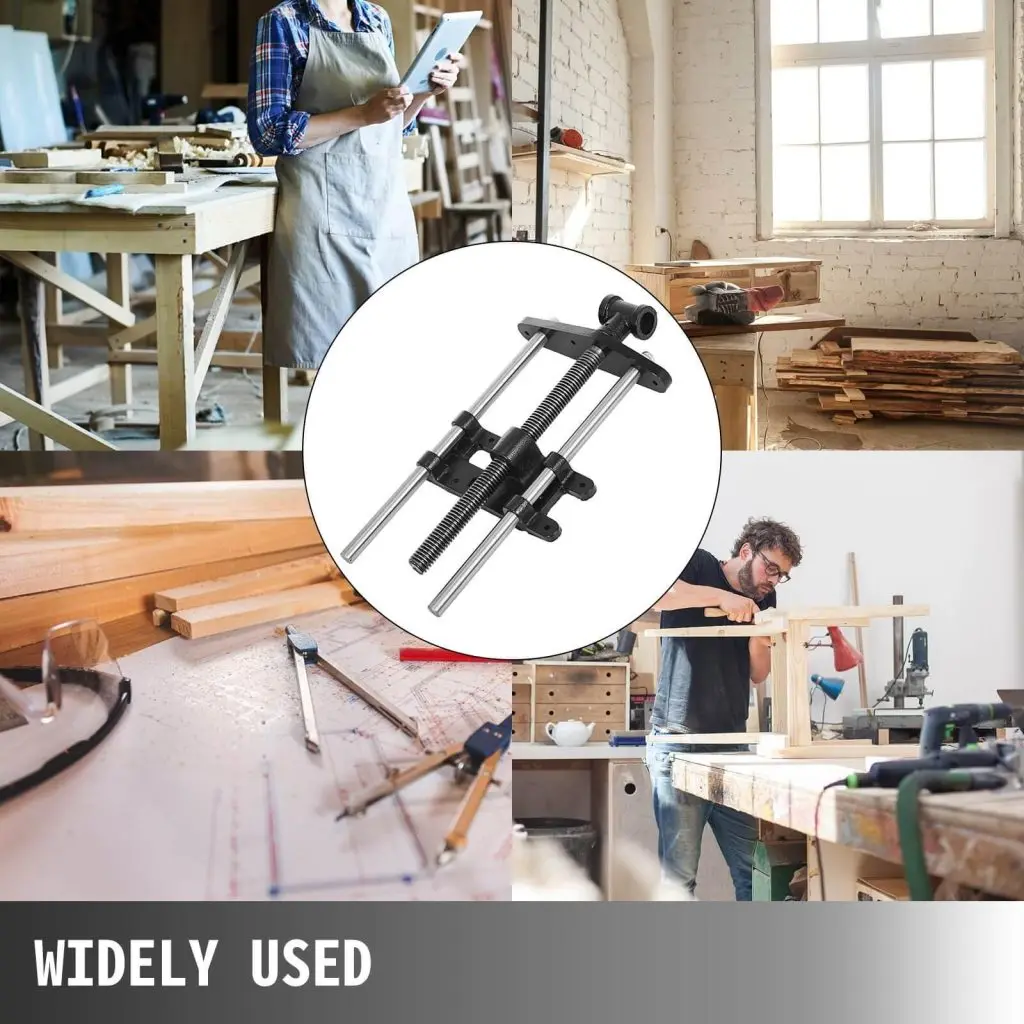Introduction
Do you feel exhausted with dust and allergens spoiling the quality of your indoor air? In your search for cleaner air, you might have to choose between a cartridge filter vs HEPA filter. They both claim to be effective for filtration, but knowing the intricacies is a must. Cartridge filters are a bit versatile, but may not be precise on what you need. On the other hand, HEPA filters excel in high-efficiency capture but they are on the more expensive side.Confused? Don’t fret. This contrasting study analyzes both the strong and weak points of each. By the end of the article, you’ll know which filter is the right one for your house or workplace because clean air is essential. Let’s get started!
Table of contents
Overview of Cartridge Filter
Cartridge filters are cylindrical filtration devices that remove contaminants from air or from liquid streams. They catch the particles in the filter media as the fluid goes by.
Types of cartridge filters
Cartridge filters are available in different types such as depth filters, surface filters and membrane filters. The use of depth filters that use the entire medium thickness to capture contaminants is different from surface filters that rely on a thin layer to catch particles. The membrane filters employ semi-permeable membrane to differentiate particles according to their sizes.
Applications and Industries:
Cartridge filters have extensive application in the sectors like water treatment, pharmaceuticals, food and beverage, chemical processing, as well as automotive. They are used for water purification to air filtration and dust elimination.
Pros:
- Versatility: Cartridge filters adjust to disparate filtration needs which thereafter cater for various substrates, shapes and sizes.
- High Filtration Efficiency: They provide outstanding filtration, trapping even the tiniest granules and toxic agents.
- Longer Service Life: Proper maintenance prolongs the cartridge filter life and cut down on filter replacements.
- Easy Installation: They are simple to install and replace, hence, bringing minimal downtime.
- Customization Options: Cartridge filters can be tailored to individual needs making them more efficient as they are adapted to the applications.
- Cost-Effectiveness: First of all, although they are costly initially, their longer lifespan and efficiency make them cost-effective over time.
- Low Pressure Drop: The cartridge filters operate with low pressure drop to minimize energy consumption and achieve optimum fluid flow.
Cons:
- Regular Maintenance Required: The cartridge filters need to be cleaned often and replaced if the optimal performance is to be maintained.
- Lower Contaminant Retention Capacity: The cartridge filters are comparatively low-capacity contaminant retaining filters as some other filters.
- Space Requirements: Also, they need more space compared to other forms of filtration which may be limiting installation options.
- Noise and Vibration: In some cases, cartridge filters can create noise and vibration and this may not be convenient for some environments.
Overview of HEPA Filter
HEPA filters (High Efficiency Particulate Air filters) are classified on their efficiency to capture particles smaller than 0.1μm in size. They do this through the process of passing air through a sieve with very fine pores that capture particles like pollen, dust, and bacteria.
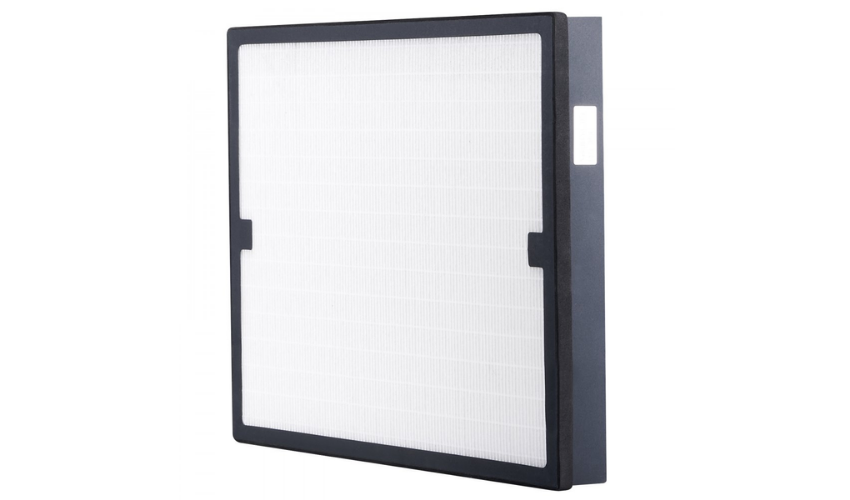
Standards and Specs
The many microscopic pollutants, like aerosols and dust particles, must not bypass these filters. For example, advanced true HEPA filters will remove up to 99.97% of particles speeding up to 0.3 microns.
Applications
You can locate HEPA filters in varied places- ranging from hospitals to houses, laboratories to medical vicinities etc. This makes them very important in very special areas where the quality of air is indispensable.
Pros:
- High Filtration Efficiency: HEPA filters efficiently mitigate airborne stuff the same way as pollen, dust and microbes making air more pure.
- Improved Air Quality: As filters HEPA have the capacity to get rid of the harmful stuff that can lead to breathing problems and other respiratory issues.
- Versatility: They can be added from HVAC systems to vacuum cleaners, air purifiers and more. This aids various applications in efficiency.
- Reliable Performance: The HEPA filter system comes with a high-performance filtration which is guaranteed to give you the freshest air for your office or home.
- Longevity: Regular maintenance allows for HEPA filters to be durable. This will ultimately provide for a prolonged protection that will benefit the aquarium.
- Low Maintenance: These are easy to maintain and normally do not demand every six to twelve month replacement.
Cons:
- High Initial Cost: HEPA filters have higher startup cost compared to others as they are costly to buy especially when they are sized larger or for specialized use.
- Increased Energy Consumption: The fact that there are a lot of buildings can entail the energy consumption high in the HVAC or air purifier systems.
- Regular Replacement Required: While the HEPA filters last longer, replacement can be required from time to time to keep filters at high efficiency.
- Limited Availability in Certain Sizes: Locating HEPA filter models that are not standard sized may turn out to be tricky, and this could restrict their usability.
Comparative Analysis – Cartridge Filter Vs HEPA Filter
Filtration systems commonly make the application between a cartridge filter vs HEPA filter an important choice. Now, let’s lay the foundation for a comparative study to equip you to make a wise choice.
A. Filtration Efficiency
- Particle size filtration capability: HEPA filters achieve the remarkable feat of trapping particles that are smaller by more than 300 times than the width of a human hair, making the HEPA filters almost 100 percent effective (99.97%). However, the filter cartridge filters generally aim the bigger particles only, within the range of 5-50 micrometers based on the design of the filter and its specifications.
- Removal efficiency of various contaminants: HEPA filters are extra-excellent in removing numerous pollutants including dust, pollen, mold spores fungal cells, bacterial and viral ones. The cartridge filter is great for the collection of large dust, debris and some pollutants but may not be as efficient as the HEPA filter at capturing the tiny particles and microorganisms.
B. Construction and Design
- Materials used: HEPA filters usually comprise a fine glass fiber mesh or a synthetic material arranged in a pleated dense arrangement. Cartridge filters, however, can be made of different materials like paper, polyester, cellulose, or synthetic fibers.
- Structure and layout: Particle capture is enhanced in HEPA filters due to a sophisticated and in depth pleated approach that has a high surface area. Cartridge filters can differ in design with cylindrical or conical shapes and pleated or smooth surfaces, depending on the particular purpose and the manufacturer.
C. Cost-effectiveness
- Initial investment: A HEPA filter is generally an expensive purchase from the initial investment due to the advanced filtration technology and special construction when compared to Cartridge filter.
- Maintenance and operational costs: Although HEPA filters might have the higher upfront costs, they are usually less costly over the long term because they are more efficient and have a longer lifespan. Cartridge filters could necessitate more frequent replacement and maintenance eventually making the product more costly.
D. Application Specifics
- Suitable environments: HEPA filters are well recognized in the high quality air environments like hospitals, laboratories, cleanrooms, and HVAC systems. Cartridge filters find wide applications from industrial processes to woodworking, automotive, and HVAC systems where fine particulate matter needs to be removed.
- Limitations and constraints: HEPA filters may not function properly in humid or hot conditions because moisture and heat can weaken the efficiency of the filter over time. Some cartridge filters cannot reach the same efficiency of ultrafine particle filtration as HEPA filters, so they should be avoided in those settings where air quality is a strict requirement.
E. Performance in Varying Conditions
- High airflow situations: HEPA filters can maintain high filtration efficiency even at high airflow rates and are therefore suitable for applications where air circulation is of major importance. Cartridge filters may encounter a performance reduction at high flow rates, thus resulting in degraded filtration efficiency.
- Extreme temperatures and pressures: HEPA filters possess more resilience to extreme temperatures and pressure as compared to Cartridge filters which may demise or collapse under severe conditions. Yet, it is important to opt for HEPA filters specifically rated for the appropriate temperature and pressure range for your unique application.
F. Lifespan and Durability
- Longevity of filters: HEPA filters usually last longer than Cartridge filters because of their better design and higher filtration performance. Nevertheless, filter lifetime varies depending on the operation conditions, maintenance practices, and filter material quality.
- Resistance to wear and tear: HEPA filters, for the most part, are more resilient and robust against wear and tear when compared to the Cartridge filters which may get degraded at a faster rate especially in the dusty or abrasive environments. Proper maintenance and filter changes at regular intervals are necessary for an efficient operation of both types of filters.
Keep reading to know the differences between HEPA Vs True HEPA and DE Filter Vs Cartridge filter.
Choosing Between Cartridge and HEPA Filters
Whether to use a cartridge filter vs HEPA filter depends on several conditions for you to choose the best option for your specific needs.
A. Consider dust and particle size
When choosing between cartridge and HEPA filters, pay attention to the size of the dust and particles that need to be removed. HEPA filters are outstandingly effective in capturing particles as small as 0.3 microns, including allergens, bacteria, and viruses because of their unique design. While disposable filters are not as effective as cartridge filters in capturing ultrafine particles, they can efficiently remove large particles like dust and debris.
B. Application and reusability needs
Assess the exact application and reuse demands. If you are in a high-risk area where the quality of air is important like in hospitals and cleanrooms, HEPA filters are good option because of their high level of filtration. As a matter of fact, if you are not in a situation where reliability and maintenance are important then cartridge filters can be a more convenient option because of how easy it is to keep them clean and reuse them.
C. Cost factors:
The cost of cartridge and HEPA filters need to be considered. While HEPA filters generally have higher filtration efficiency levels, these filters are also more expensive to buy and maintain. Cartridge filters may be cheaper to buy initially and it may be economical in the long term using them multiple times with proper maintenance. Calculate your budget and compare upfront costs with continuing expenses to see which one better suits your financial circumstances.
Filter Products for Unrivaled Filtration Efficiency
Uncover essential information on overview, specs and features of top class cartridge filter vs HEPA filter products:
VEVOR HEPA Filter
Replace your air filtration system with VEVOR HEPA Replacement Filter. Hereby, you have a dimension of 24”x24”x11.5” that fits inside your Novair 2000 HEPA Filter. Retain 99.97 % of particles as small as 0.3 microns, which contribute to the quality of clean air devoid of dust, hair, mold, pollen, viruses, and odors. Galvanized steel frame that makes it resist deformation and ensures its durability is provided. The deep-pleat pattern allows high-performance of debris capture. Experience a healthier living space with the ‘properly sealed construction’ for longer service life. Typically used for residential and commercial purposes, this guarantees that your air condition system is always clean and fresh.
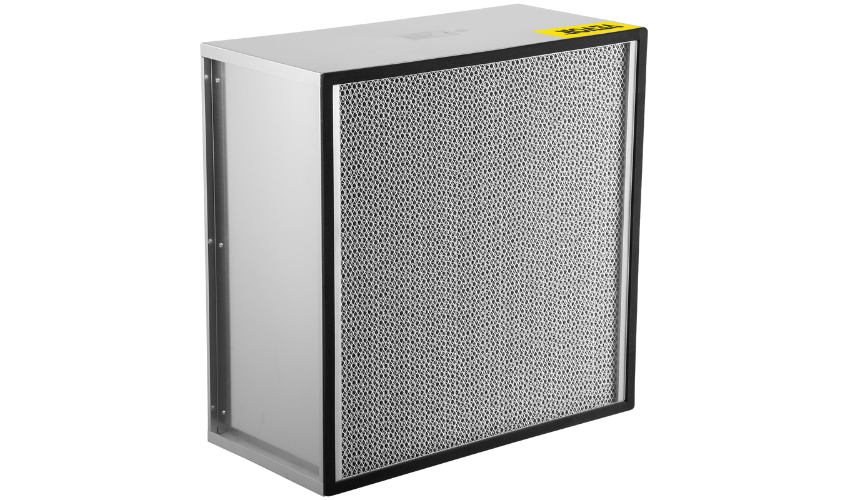
VEVOR Cartridge Pool Filter
VEVOR Pool Cartridge Filter for use with both in-ground and above-ground swimming pools, including inflatables. Designed with an ABS corrosion-free, easy-to-maintain casing. The high-density polyester cartridge efficiently absorbs grease, dust and other debris, ensuring clean and odor-free pool. Automatic pressure relief prevents overpressure so that safety is guaranteed. Simple installation with two water inlets and a water outlet, complete with unions. Get a sparkling and rejuvenating pool all summer with VEVOR Pool Cartridge Filter that not only offers comfort, but also safety for you and your family.
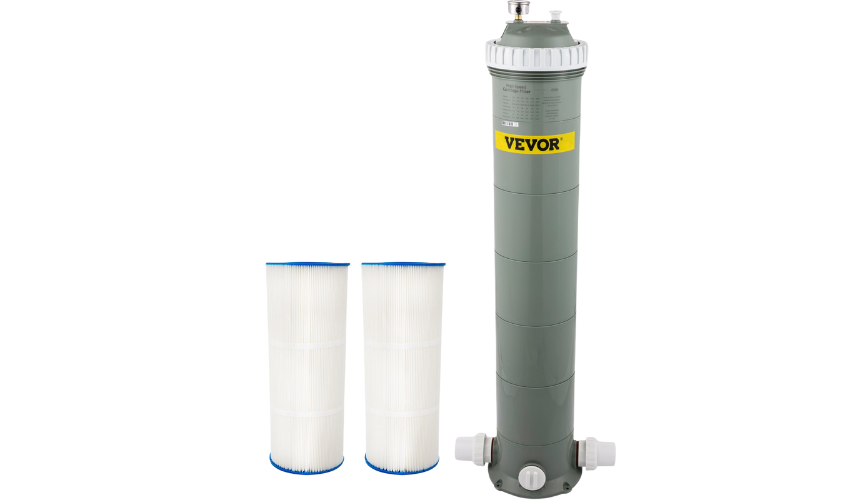
FAQs
This section throw light on the common FAQs on cartridge filter vs HEPA filter:
Which filter type is recommended for vacuum cleaner?
Choose a HEPA filter first when shopping for a vacuum cleaner filter. Small particles likes dust, pollen, and pet dander get adequately captured by them. They are particularly good for people with allergies or who are worried about contaminated air.
How do I know if a filter is HEPA?
To be aware if a filter is HEPA, look for the HEPA certification label. It guarantees that the device is up to the mark as far as effective removal of particles and efficiency is concerned. Seek for descriptions like “True HEPA” or “HEPA Certified” on the label or the filter itself.
Is HEPA filter good for vacuum?
Actually, HEPA filters are outstanding for vacuum cleaners. They are able to hold smaller particles than 0.3 microns to ensure clean air and a sound nature. Either when vacuuming carpets or hard floors, a vacuum with a HEPA filter will outperform most conventional filters.
What are the three most commonly used filters?
The most common filters used in vacuums are HEPA, foam, and cloth filters. All perform various tasks but they are united in their desire to get rid of dust, dirt, and allergen by doing it effectively. HEPA filters are in a category of their own by virtue of their astounding efficiency in trapping very small particles, as such the most preferred choice for many consumers.
Conclusion
Summing Up, comparative knowledge of the cartridge filter vs HEPA filter will be vital in securing appropriate air filtration. Through picking a filter type with HEPA, you can be able to enhance the indoor air quality and reduce allergens in your home. Go for informed decision on the basis of your particular needs and requirements. Count on that, your health and happiness are in your hands. If you are looking for reliable performance and cleaner air, VEVOR products including HEPA air filter and cartridge pool filter are the one for you when it comes to quality filters. Repair your vacuum cleaner today and inhale more freely today.

